Search
Remove Ads
Advertisement
Summary 
Loading AI-generated summary based on World History Encyclopedia articles ...
Search Results
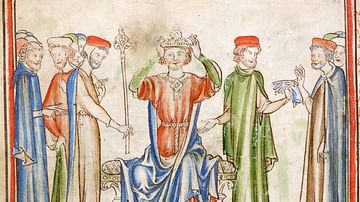
Definition
Harold Godwinson
Harold Godwinson (also spelt Godwineson) reigned briefly as King Harold II of England from January to October 1066 CE, the momentous year which witnessed the Norman conquest and end of 500 years of Anglo-Saxon rule. Harold had been, as the...
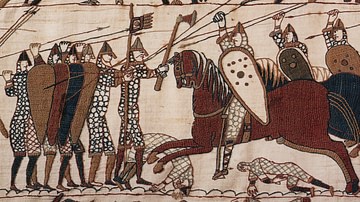
Definition
Battle of Hastings
The Battle of Hastings in south-east England on 14 October 1066 saw the defeat of the Anglo-Saxon king Harold II (r. Jan-Oct 1066) by the invading Norman army led by William, Duke of Normandy (reigned from 1035). After a day of heavy fighting...
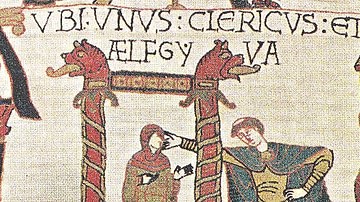
Definition
Aelfgifu of Northampton
Aelfgifu of Northampton (fl. 1013-1037) was an English noble who married the English and Danish king Cnut (r. 1016-1035) and was the mother of the English king Harold I Harefoot (r. 1035-1040). Aelfgifu reached the height of her influence...
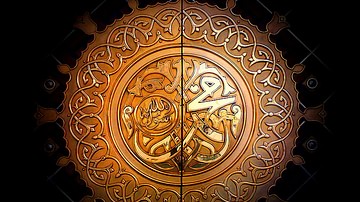
Definition
Islam
Islam is an Abrahamic-monotheistic religion based upon the teachings of Prophet Muhammad ibn Abdullah (l. 570-632 CE, after whose name Muslims traditionally add “peace be upon him” or, in writing, PBUH). Alongside Christianity and Judaism...
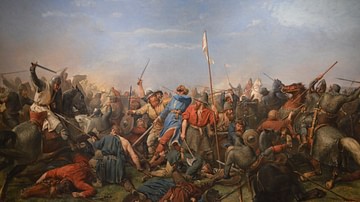
Article
Battle of Stamford Bridge
The Battle of Stamford Bridge in Yorkshire, England on 25 September 1066 CE saw an army led by English king Harold II (r. Jan-Oct 1066 CE) defeat an invading force led by Harald Hardrada, king of Norway (r. 1046-1066 CE). Hardrada, aided...
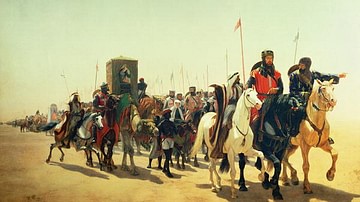
Definition
Crusades
The Crusades were a series of military campaigns organised by popes and Christian western powers to take Jerusalem and the Holy Land back from Muslim control and then defend those gains. There were eight major official crusades between 1095...

Article
The Spread of Islam in Ancient Africa
Following the conquest of North Africa by Muslim Arabs in the 7th century CE, Islam spread throughout West Africa via merchants, traders, scholars, and missionaries, that is largely through peaceful means whereby African rulers either tolerated...
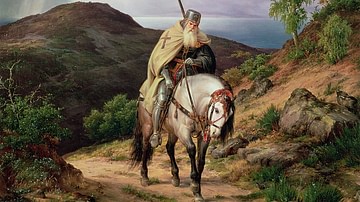
Article
The Crusades: Consequences & Effects
The crusades of the 11th to 15th century CE have become one of the defining events of the Middle Ages in both Europe and the Middle East. The campaigns brought significant consequences wherever they occurred but also pushed changes within...
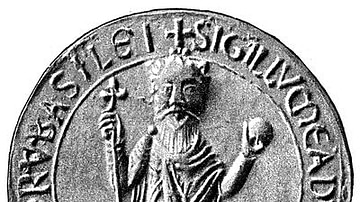
Definition
Edward the Confessor
Edward the Confessor, also known as Saint Edward the Confessor, reigned as king of England from 1042 to 1066 CE. Edward was reliant on the powerful Godwine (aka Godwin) family to keep his kingdom together but his achievements included a relatively...

Definition
Norman Conquest of England
The Norman Conquest of England (1066-71) was led by William the Conqueror who defeated King Harold II at the Battle of Hastings in 1066. The Anglo-Saxon elite lost power as William redistributed land to his fellow Normans. Crowned William...